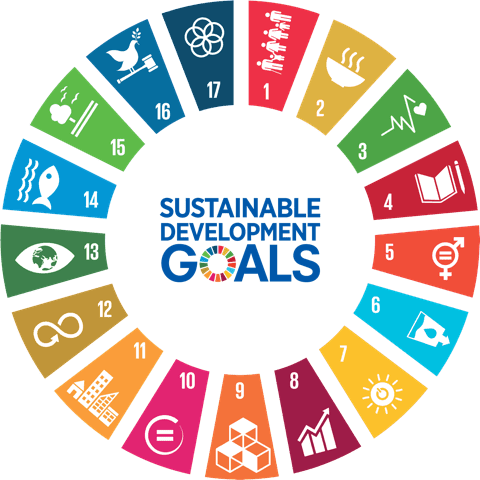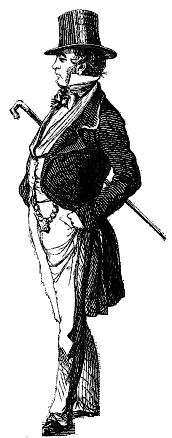SDG16 - PEACE,JUSTICE AND STRONG INSTITUTIONS
المقررات الدراسية موسومة بـ "SDG16 - PEACE,JUSTICE AND STRONG INSTITUTIONS"
- Teacher: Reem Abdelhakeem Abdelqader Mahmoud
- Teacher: Walid Anwar Mohamed Khairy Alraffey
- Teacher: Mariam Hatem Hagar
- Teacher: Zeinab Abd El Halim Taha El Maboud
- Teacher: Mohamed Elsayed Ghoneimy Mohamed
- Teacher: Raghda Essam Abd El-Razek Ali
- Teacher: Ali Hamed Bastawesy
- Teacher: Wael Hassan Gomaa
- Teacher: Reem Kadry
- Teacher: computer science MSA
- Teacher: Mariam Osama Abo Ghonima Kottb
- Teacher: Hanan Tarek Abdullah Maroof
- Teacher: Momen Zaher
- Teacher: Nour Saad Zawawi
|
- Teacher: Maha Abd Elsalam Elbaz
- Teacher: Manar Awad Ahmed Awad Mohamed
- Teacher: Ali Esam Ali Abdel Naby
- Teacher: Nada Khaled Mohamed Abdel Aziz Ramadan
- Teacher: Yasmin Labib
- Teacher: Donia Mamdouh Ahmed Elshafey
- Teacher: Moataz Mohamed Abdel Hafez El-Kholy
- Teacher: Aliaa Mohamed Mahmoud Abdel-Rahman El-Wakeel
- Teacher: Youmna Mohamed Mahmoud Abdelhadi
- Teacher: Ahmed Mohamed Rashad Mohamed
- Teacher: Nader Nabil El Bokl
- Teacher: Shereen Wagdy Arafat Mousa

Discourse Analysis- frequently known as “language use above the level of the sentence” provides students with the opportunity to study the meaningful production and interpretation of texts and talk. students get introduced to the field of Discourse Analysis in order to unpack texts for generating meaning and bind it with their study of society and culture. They will gain an advanced understanding of the concept of ‘context’ and its relevance in the process of the production of meaning. The course provides students with frameworks and tools to examine and critique texts and instances of language use that is much relevant to socio-economic and socio-cultural issues such as gender, social power and minorities, environment, health and pandemics
- Teacher: Rania Abd El Fattah Abd El Hameed
- Teacher: Alaa Ali El Badri
- Teacher: Hebat Allah Adel Shaaban Hassan
- Teacher: Dr.Marwa El-Sheikh
- Teacher: Dr.Nagla Ibrahim Saleh al-Hadidy
- Teacher: Dr.Zakaria Kamal Abdel Maguid Alssiefy
- Teacher: Nourhan Khaled Ahemd
- Teacher: Dr.Ghada Mohamad Al-Akhdar
- Teacher: Dr.Olfat Nour El-Din Kerney Mohammad Yussef
- Teacher: Dr.Soha Raafat
- Teacher: Dr.Radwa Zakaria Abdel-Rahman
- Teacher: Ehsan Abd El Moniem Zaki
- Teacher: Maha Abd Elhakeem Hassan
- Teacher: Yasmine Ahmed Sweed
- Teacher: Hebat Allah Adel Shaaban Hassan
- Teacher: Yasmeen Fahd Mohamed
- Teacher: Omnya Ibrahim Muhammad Saad
- Teacher: Dr.Nagla Ibrahim Saleh al-Hadidy
- Teacher: Nourhan Khaled Ahemd
- Teacher: Dr.Kholoud Mansour Khalifa
- Teacher: Dr.Ghada Mohamad Al-Akhdar
- Teacher: Dr.Soha Raafat
- Teacher: Amani Wageh Abd Al-Halim
- Teacher: Hala Yousry Darwish

Animal studies is among the budding fields that is attracting a lot of attention over the past two decades. This is partially due to the cultural and conceptual shifts in the figuration of animals from mere objects, serving the humans, to subjects in their own rights. Admittedly, such shifts are triggered by our growing awareness of environmental and animal rights questions in what may be deemed a post-human age.
- Teacher: Hebat Allah Adel Shaaban Hassan
- Teacher: Dr.Nagla Ibrahim Saleh al-Hadidy
- Teacher: Nourhan Khaled Ahemd
- Teacher: Dr.Olfat Nour El-Din Kerney Mohammad Yussef
- Teacher: Dr.Soha Raafat
This course provides students with an understanding of western philosophic concepts that formed the foundations of modern civilization. It also addresses major issues that relate to the UN Sustainable Development Goals (SDGs) such as establishing justice & peace, reducing inequalities and building strong political institutions. As such, the course complements knowledge acquired by MSA students of English Studies in the fields of culture, enhances their skills in the analysis of socio-cultural phenomena in literature, develops their Problem-solving skills, communication skills, persuasive powers and writing skills. In addition, the course helps students develop sound methods of research and analysis as well as tools to evaluate and criticize different trends of thought.
- Teacher: Maha Abd Elhakeem Hassan
- Teacher: Tasneem Al-Moataz Mohamed Rashad
- Teacher: Hebat Allah Adel Shaaban Hassan
- Teacher: Nourhan Ashraf Muhammad
- Teacher: Yasmeen Fahd Mohamed
- Teacher: Sally Hanna Michael Hanna
- Teacher: Dr.Nagla Ibrahim Saleh al-Hadidy
- Teacher: Nourhan Khaled Ahemd
- Teacher: Dr.Ghada Mohamad Al-Akhdar
- Teacher: Dr.Soha Raafat
- Teacher: Dr.Mustafa Riad
This unit aims to enhance the students’ knowledge and skills needed to conduct a research paper of substantial depth and length under the supervision of a faculty member, whether it is theoretical based on literature review and analysis, or empirical based on econometric, statistical or mathematical analysis.
Topics selected by students for their graduation projects are closely linked to sustainable development goals, especially SDG8 related to decent work and economic growth, as they create models where they try to determine the main catalysts for growth in certain countries or regions. Students also choose topics related to reducing poverty (SDG1) or inequality (SDG10), quality education (SDG4) gender equality (SDG5) and many other SDGs.- Teacher: Dr.Doaa Abdou
- Teacher: Nadine Amr Mohamed Abdelmoneim Hosny
- Teacher: Dr. Heba Ezz Helmy
- Teacher: Maha Ismail Mahfouz Ismail
- Teacher: Salma Kamal Zanaty Mahran
- Teacher: Nadeen Sherif Mamdouh Eladawy
This unit aims to enhance the students’ knowledge and skills needed to conduct a research paper of substantial depth and length under the supervision of a faculty member, whether it is theoretical based on literature review and analysis, or empirical based on econometric, statistical or mathematical analysis.
Topics selected by students for their graduation projects are closely linked to sustainable development goals, especially SDG8 related to decent work and economic growth, as they create models where they try to determine the main catalysts for growth in certain countries or regions. Students also choose topics related to reducing poverty (SDG1) or inequality (SDG10), quality education (SDG4) gender equality (SDG5) and many other SDGs.
- Teacher: Dr.Doaa Abdou
- Teacher: Dina Ali Mohamed Ali Seiam
- Teacher: Nadine Amr Mohamed Abdelmoneim Hosny
- Teacher: Dr. Heba Ezz Helmy
- Teacher: Fatma Hesham Saber
- Teacher: Salma Kamal Zanaty Mahran
- Teacher: Esmat Mostafa Kamel
- Teacher: Nadeen Sherif Mamdouh Eladawy
- Teacher: T.A.Nouran said mohamed abd el menaam mahmoud
- Teacher: Dr.Doaa Abdou
- Teacher: Menna Ahmed Elsayed Salem
- Teacher: F.T. Instructor.Hend Al Ebiary
- Teacher: Nadine Amr Mohamed Abdelmoneim Hosny
- Teacher: Mona Bedier
- Teacher: Nada Fouad Kassem Elsahaar
- Teacher: Salma Kamal Zanaty Mahran
- Teacher: Dr.Mai Mohammed Yasser
- Teacher: Nadeen Sherif Mamdouh Eladawy
- Teacher: Amal Soliman
- Teacher: Dr.Rehab mohammed mahmoud el bordiny
Macroeconomics is concerned with the understanding of aggregate phenomena such as economic growth, business cycles, unemployment, inflation, and international trade among others. ... These topics are of particular relevance for the development and evaluation of economic policy.

- Teacher: Dr.Doaa Abdou
- Teacher: Nagah Ashraf Mohamed
- Teacher: Mona Bedier
- Teacher: Salma Kamal Zanaty Mahran
- Teacher: Dr.Mai Mohammed Yasser
- Teacher: Dr.Rehab mohammed mahmoud el bordiny

This module is the first part of two twin modules teaching the history of economic thought. The aim of this module is to explain and evaluate the evolution of economic thought starting from the Greek times till the mid-nineteenth century and the emergence of Marxist thought.
Although historical, this module contributes in the theoretical economic underpinning of the 2030
Agenda and the role of classical and neoclassical economic theory in this context. Most economic theories – as the 2030 Agenda – are related to
every aspect of sustainability especially those linked to decent work and economic growth (SDG 8), reduced inequality (SDG 10) and peace, justice and strong institutions (SDG 16).
- Teacher: Dr.Doaa Abdou
- Teacher: Menna Ahmed Elsayed Salem
- Teacher: Dina Ali Mohamed Ali Seiam
- Teacher: Nada Fouad Kassem Elsahaar
- Teacher: Dr. Heba Ezz Helmy
- Teacher: Salma Kamal Zanaty Mahran
- Teacher: Nour Tamer Ali Elsayed Ghouniem
- Teacher: Roba Tarek Mahmoud El Nahas
- Teacher: Dr.Rehab mohammed mahmoud el bordiny

This module is the second part of two twin modules focusing on the history and development of economic thought. The aim of this module is to explain and evaluate the evolution of economic thought starting from the end of the first part module namely the emergence of Marxist thought till the contemporary developments in macroeconomics and microeconomics.
Although
historical, this module contributes in the theoretical economic
underpinning of the 2030
Agenda and the role of classical and neoclassical economic theory in
this context. Most economic theories – as the 2030 Agenda – are related
to
every aspect of sustainability especially those linked to decent work
and economic growth (SDG 8), reduced inequality (SDG 10) and peace,
justice and strong institutions (SDG 16).
- Teacher: Dr.Doaa Abdou
- Teacher: Menna Ahmed Elsayed Salem
- Teacher: Nada Fouad Kassem Elsahaar
- Teacher: Dr. Heba Ezz Helmy
- Teacher: Dr.Rehab mohammed mahmoud el bordiny